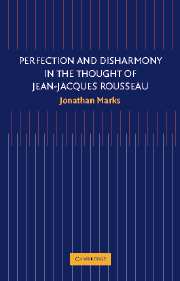Book contents
4 - Rousseau and Charles Taylor
Published online by Cambridge University Press: 18 July 2009
Summary
The last three chapters were part of an attempt to recover Rousseau. In the place of the Rousseau who slew nature for the sake of freedom, I have put a Rousseau for whom nature remains a guide and limit for human beings in their pursuit of the best way of life. In the place of the Rousseau whose expeditions led inevitably to the polar extremes of our discontent with modernity, to radical individualism and radical collectivism, I have put a Rousseau who endorses a middle way, in which one succeeds in combining, however warily, the goods the bourgeois seeks so unsuccessfully to combine. Rousseau's thought, on my reading, is a reflection on the natural perfection of a naturally disharmonious being.
Rousseau's legacy is often understood in two different but related ways. Contemporary defenders of community, usually known as communitarians, admit that Rousseau is a relative but only a kind of crazy uncle, from whom the family does well to distance itself. Charles Taylor captures the most important sense in which Rousseau's assault on modernity is connected to contemporary defenses of community. Like many contemporary communitarians, Rousseau is concerned at one and the same time with community and authenticity, which at first appear to be opposed concerns. Rousseau is “one of the points of origin of the modern discourse of authenticity” but he understood that complete independence from social opinion is impossible for individuals.
- Type
- Chapter
- Information
- Publisher: Cambridge University PressPrint publication year: 2005



